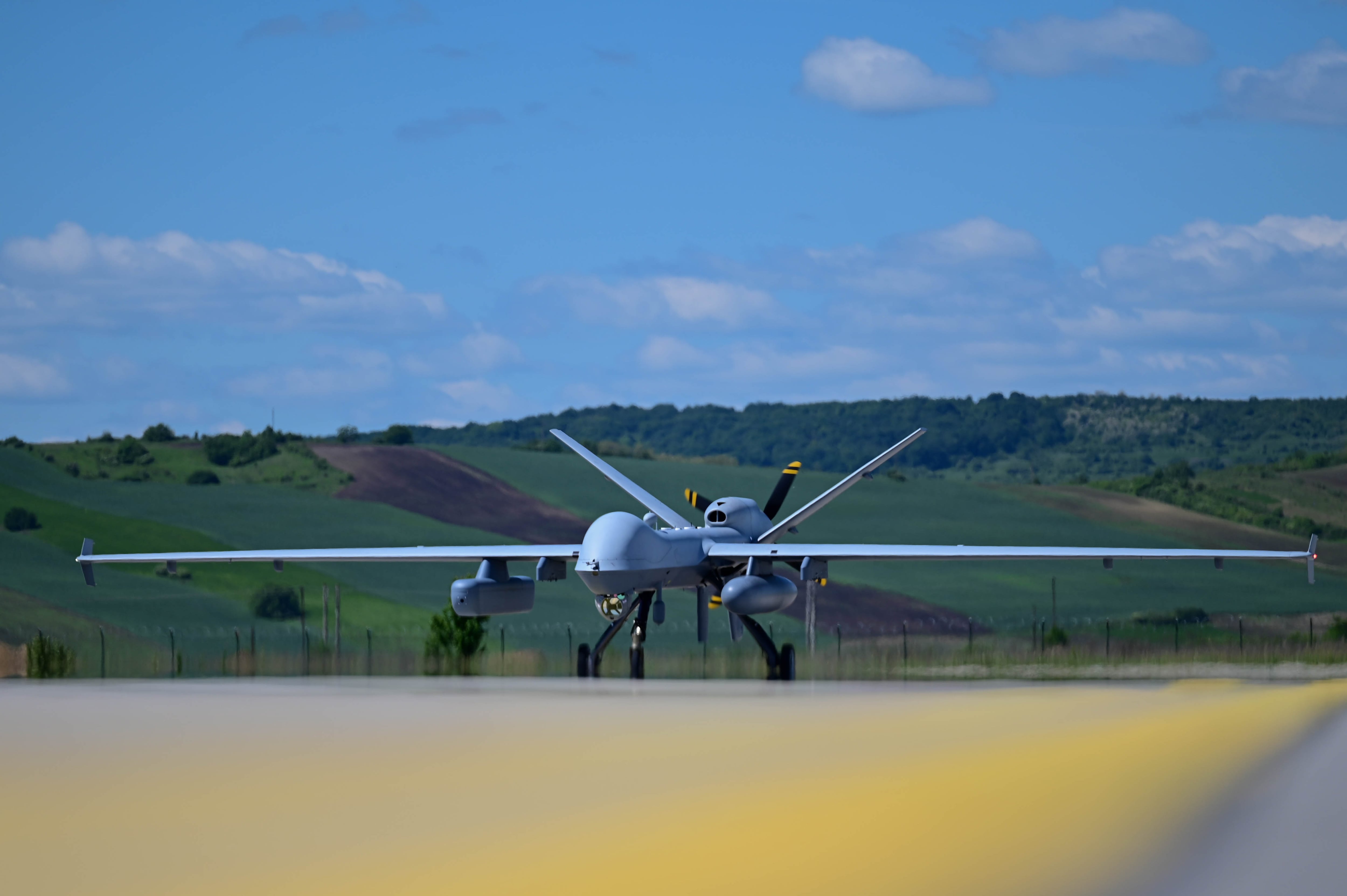DUBAI, United Arab Emirates — Yemen’s Houthi rebels on May 17 claimed to have shot down an American drone, hours after footage circulated online of what appeared to be the wreckage of an MQ-9 Reaper drone. A vessel also came under attack in the Red Sea early the next day.
The two incidents likely represent just the latest attacks by the Houthis as they press their campaign over the Israel-Hamas war in the Gaza Strip.
Houthi military spokesman Brig. Gen. Yahya Saree claimed that rebels shot down the Reaper on May 16 with a surface-to-air missile. He described the drone as “carrying out hostile actions” in Yemen’s Marib province, which remains held by allies of Yemen’s exiled, internationally recognized government.
The Houthis later released footage they claimed showed the surface-to-air-missile being launched at night, along with night-vision footage of the missile hitting the drone. A man, whose voice had been digitally altered to apparently prevent identification, chanted the Houthi slogan: “God is the greatest; death to America; death to Israel; curse the Jews; victory to Islam.”
Online video showed wreckage resembling the pieces of the Reaper on the ground, as well as footage of that wreckage on fire.
The U.S. military did not respond to a request for comment from The Associated Press over the Houthi claim. While the rebels have made claims about attacks that turned out later not to be true, they have a history of shooting down U.S. drones and have been armed by their main benefactor, Iran, with weapons capable of high-altitude attack.
Since the Houthis seized the country’s north and its capital, Sanaa, in 2014, the U.S. military has previously lost at least five drones to the rebels.
Reapers, which cost around $30 million apiece, can fly at altitudes up to 50,000 feet and have an endurance of up to 24 hours before needing to land.
The drone shootdown comes as the Houthis launch attacks on shipping in the Red Sea and Gulf of Aden, demanding Israel ends the war in Gaza, which has killed more than 34,000 Palestinians there. The war began after Hamas-led militants attacked Israel on Oct. 7, killing 1,200 people and taking some 250 others hostage.
The Houthis have launched more than 50 attacks on shipping, seized one vessel and sunk another since November, according to the U.S. Maritime Administration.
Early May 18, the British military’s United Kingdom Maritime Trade Operations center said a ship came under attack off the coast of Yemen’s port city of Hodeida.
The captain “has confirmed sustaining slight damage after being struck by an unknown object on his port quarter,” the UKMTO said. “The vessel and crew are safe and continuing to its next port of call.”
The private security firm Ambrey said it believed the vessel struck was a Panama-flagged crude oil tanker.
Radio traffic suggested the ship was “hit by a missile and that there was a fire in the steering gear flat,” Ambrey said.
The Houthis did not immediately acknowledge the attack, though it typically takes them hours to issue a claim.
Houthi attacks have dropped in recent weeks as the rebels have been targeted by a U.S.-led airstrike campaign in Yemen. Shipping through the Red Sea and Gulf of Aden still remains low because of the threat, however.





